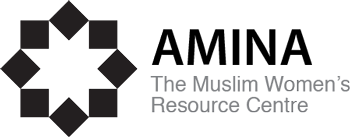16 Days of Activism: The Campaign to End Gender-Based Violence
The 16 Days of Activism against Gender-Based Violence is an annual international campaign that runs from the 25th November, International Day for the elimination of violence against women, to the 10th December, Human Rights Day. The campaign is coordinated by the Centre for Women’s Global Leadership and the theme this year is ‘Ending Femicide’.
We spoke to Rabia Roshan, Violence Against Women and Girls Development Worker for SEIN member Amina Women’s Resource Centre, to learn more about the 16 days, and what action we can all be taking. At the bottom of the page you can find available resources, what’s going on in and around Glasgow over the 16 Days and useful contacts.
Why are the 16 Days of Activism important?
It's important to have a collective response to violence against women, and there's no greater collective response than a global campaign that runs every year. As they say, there's strength in numbers and to have organisations and people across the globe connecting, raising awareness and challenging gender-based violence at the same time, is so powerful.
What access barriers faced by people affected by gender-based violence do you think community service providers need to be considering?
Specific barriers faced by survivors or victims will vary across groups. At Amina, we provide a lot of training to other services, universities, work places etc around the particular forms of GBV which impact Muslim and/or BME women specifically and also the intersecting forms of discrimination they face in their experiences. We encourage people to consider what a survivor's experience will be before even reaching out to services, e.g. islamophobia, racism, sexism. And the impact of these experiences, all before exploring and supporting them through any GBV they have experienced. We look at forms of abuse such as honour based abuse, extended family abuse and the nuances of these forms, such as how for BME women there will often be multiple perpetrators and how the abuse can cross borders, increasing their risk massively of serious harm or homicide. And how Scots law defines domestic abuse as being between intimate partners/ex partners, and doesn't consider extended family who may be perpetrating the abuse.
What key issues surrounding gender-based violence should individuals be aware of, and what actions can they take?
We need to be listening to the experiences of survivors from BME communities, especially because of how under reported honour-based abuse and honour killings are. It would usually be a family member who would report someone missing, but if the family includes perpetrators, the silence becomes all too loud and we're losing the real picture of what survivors of colour are going through. It's important to never force information or support, but to guide and gently encourage. It's to authentically seek out and listen to lived experiences, rather than make assumptions, when we have no lived experience of it ourselves. It's to meet survivors at their own level, at their own pace and truly support them, rather than just perpetuating the abuse again and again by taking away any sense of control or agency from them, and assuming we know what's best for them, especially when they aren't being heard and have so many barriers stacking the odds against them.
Click here for more info about Amina MWRC.
Events Going on over the 16 Days:
'Izzat, aye?': Let's Talk About "Honour" - Amina MWRC, Thursday 1st December 6.00pm-8.30pm, Glasgow City Chambers.
Remembering victims of honour-based abuse, with speakers, Payzee Mahmod, a short play, poetry, victims' accounts and displays of artwork.
Click here to register for event‘A Scotland Free from Men’s Violence Against Women and Girls’ - Zero Tolerance Scotland, Tuesday 29 November 3:00pm – 5:00pm, Edinburgh and online.
Event particularly for senior managers in government and national public bodies, elected representatives, local authority officials, civil servants, and senior managers and policy officers working in the third sector.
Click here to register for eventImprovement Service’s Calendar of events.
A calendar of all the events in Scotland taking place over the 16 Days.
Click here for the calendar.
Available Resources:
‘Take Action to prevent Femicide Against Women’
The Centre for Women’s Global Leadership have put together a guide that recommends activities for a range of individuals, including you as a member of the community and as an activist, and for key actors, such as government officials, policymakers, employers, media, and academic institutions.
Click here to download the guide.‘Honour-Based Abuse: The impacts for young people and barriers seeking support’
Rabia Roshan wrote a blog for Scottish Women’s Aid for the 2021 campaign of the same theme.
Click here to read the post.‘16 Days Toolkit’
The National Violence Against Women Network have developed a toolkit of resources to add value to local 16 Days of Activism Against Gender-Based Violence campaigns across Scotland.
Click here to download the toolkit.‘Shifting Sands – Coercive Control Training Toolkit’
Shift Sands Film & Training Toolkit offers a coherent understanding of coercive control and how to effectively support victims.
Click here to download the toolkit.
Useful Contacts:
These are Glasgow based projects to contact if you suspect someone you know to be affected by gender-based violence, or if you are being affected yourself.
The Daisy Project - An integrated domestic abuse advocacy and support service.
Women’s Support Project - The Project works to raise awareness of the extent, causes and effect of male violence against women, and for improved services for those affected by violence.
The Ruby Service – Culturally sensitive advocacy from Glasgow Rape Crisis for women of different nationalities and global majority ethnic groups.


